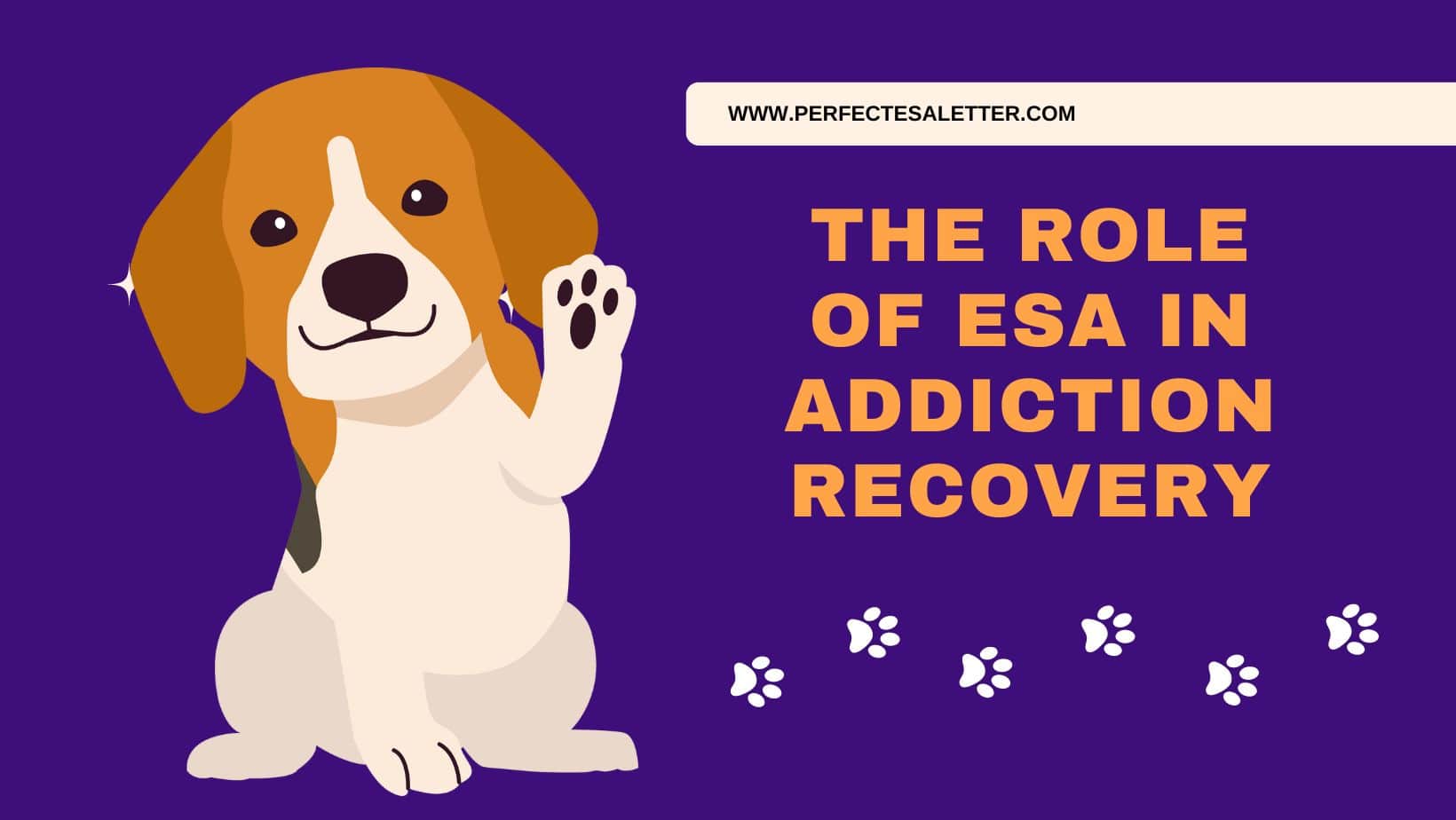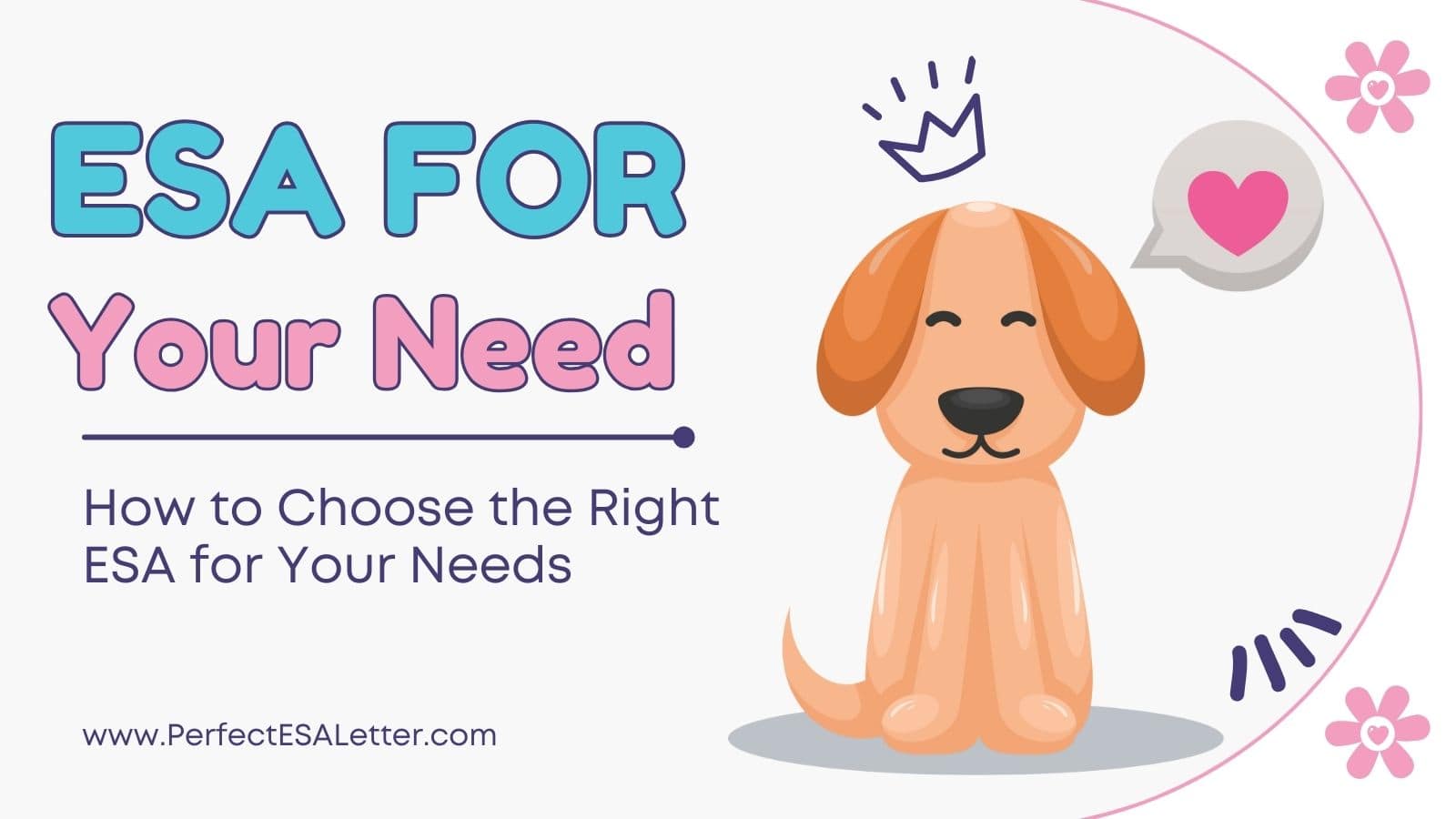The Role of ESAs in Addiction Recovery
The Role of ESAs in Addiction Recovery
Addiction recovery is a challenging journey, often fraught with emotional highs and lows. While traditional therapies and medications play pivotal roles, an emerging avenue in this landscape is the incorporation of Emotional Support Animals (ESAs).
These furry companions offer unique support and companionship, aiding individuals in their path toward sobriety.
In this comprehensive guide, we delve into the profound impact ESAs can have in addiction recovery.
ESAs: More Than Just Pets
Emotional Support Animals are not mere pets; they are specially trained to provide comfort, companionship, and emotional stability to individuals struggling with mental health issues, including addiction. Unlike service animals, ESAs do not require specific training to perform tasks. Instead, their presence alone offers therapeutic benefits to their owners.
Understanding Addiction Recovery
What is Addiction Recovery
Addiction recovery refers to the process of addressing and overcoming substance use disorders or behavioral addictions.
It encompasses physical detoxification, psychological healing, and lifestyle changes aimed at achieving sobriety and long-term wellness.
Key Components
Acknowledgment: Acknowledging the presence of addiction and its impact on one’s life is the first step towards recovery.
Treatment: Seeking professional help through therapy, counseling, medication, or support groups is crucial for addressing underlying issues and developing coping strategies.
Support: Establishing a strong support system comprising friends, family, peers, and healthcare professionals provides encouragement and accountability throughout the recovery journey.
Lifestyle Changes: Adopting healthier habits, managing triggers, and cultivating resilience are essential for maintaining sobriety and preventing relapse.
Personal Growth: Embracing self-discovery, self-awareness, and personal development fosters empowerment and helps individuals rebuild their lives with purpose and meaning.
How ESAs Aid in Addiction Recovery
- Comforting Companionship:
- ESAs provide a sense of companionship and belonging during the often lonely and isolating journey of addiction recovery.
- Their presence reassures individuals that they are not alone in their struggles, offering emotional support and understanding.
- Emotional Stability and Stress Reduction:
- ESAs have a remarkable ability to sense their owner’s emotions and provide unconditional love and support.
- Their calming presence helps alleviate feelings of anxiety, depression, and stress, promoting emotional stability and well-being.
- Encouraging Routine and Responsibility:
- Caring for an ESA instills a sense of purpose and structure in one’s daily life.
- The responsibility of meeting their needs, such as feeding, grooming, and exercise, fosters accountability and consistency in recovery efforts.
- Building Confidence and Self-Esteem:
- The non-judgmental nature of animals creates a safe space for individuals to be themselves without fear of criticism or rejection.
- Through the bond formed with their ESA, individuals experience a boost in self-esteem and confidence, empowering them to tackle challenges.
- Encouraging Healthy Habits and Lifestyle Changes:
- ESAs motivate individuals to adopt healthier routines, such as going for walks and engaging in outdoor activities..The responsibility of caring for an ESA often leads to improved self-care practices and a greater sense of purpose.
Incorporating ESAs into Treatment Plans
Consultation with Healthcare Professionals:
- Assessment: Healthcare professionals assess the suitability of incorporating an ESA into an individual’s treatment plan, considering factors such as living arrangements and the individual’s mental health needs.
- Documentation: Documentation from a licensed mental health professional may be required to certify the individual’s need for an ESA as part of their treatment plan.
Training and Care:
- Training: While ESAs do not require specific training, basic obedience training and socialization are beneficial to ensure the well-being of both the individual and the animal.
- Veterinary Care: Regular veterinary check-ups and preventive care are essential to ensure the ESA’s health and well-being.
Legal Considerations and Rights of ESA Owners
Housing and Accommodations:
- Fair Housing Act (FHA): Under the FHA, individuals with ESAs are entitled to reasonable accommodation in housing, even in properties with no-pet policies.
- Air Carrier Access Act (ACAA): The ACAA allows individuals with ESAs to travel with their companions in the cabin of an aircraft, provided they meet specific requirements and provide documentation.
Bottom Line
Emotional Support Animals play a multifaceted role in addiction recovery, offering unparalleled emotional support, stress relief, and companionship to individuals navigating the complexities of sobriety.
By integrating ESAs into treatment plans, individuals can harness the therapeutic benefits of these furry companions, fostering a sense of stability and well-being throughout their recovery journey.
As the understanding of mental health evolves, ESAs stand as invaluable allies in the pursuit of lasting sobriety and emotional wellness.






